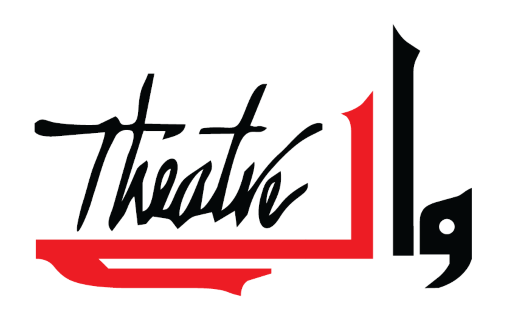The Theatre Wallay has successfully concluded its impactful theater project, aimed at fostering dialogue and increasing awareness about pressing issues such as gender-based violence, child marriages, and sexual and reproductive health. This endeavor was made possible through the generous support of the School of Leadership Foundation and UNFPA Pakistan.
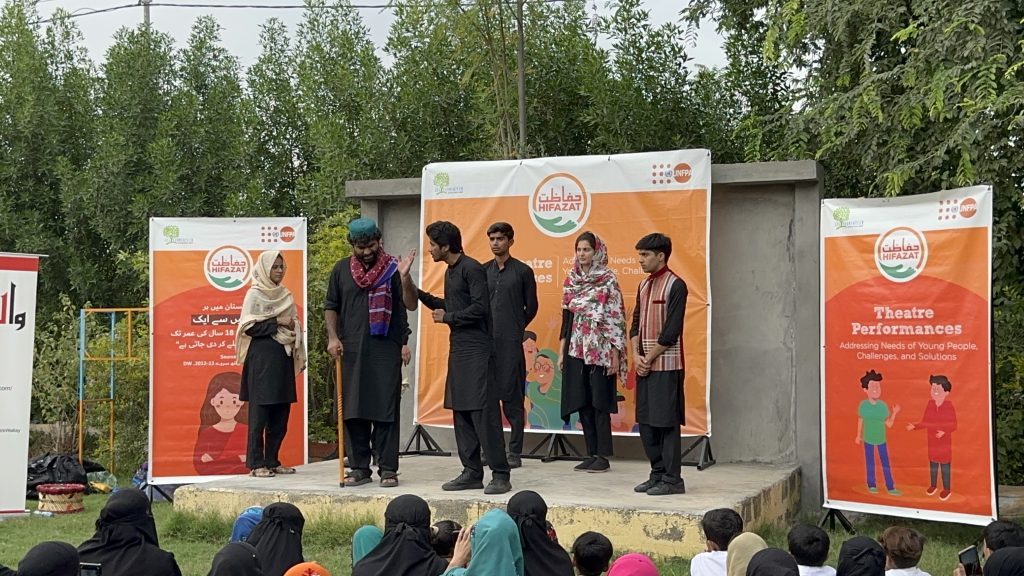
At the core of this initiative was the development of the play ‘Baat Karo Bhai Baat Karo,’ which delved into the complexities surrounding the mentioned issues. The play was showcased across 10 districts in Pakistan, encompassing Rawalpindi, Swabi, Khairpur, Sukkur, Larkana, Lasbela, Multan, Bahawalpur, Charsadda, and Swat, with a total of 21 performances held during October and November 2023.
Following each 30-minute-long performance, engaging discussions with the audience were conducted, allowing for a deeper exploration of the highlighted social concerns. To maximize outreach, performances were strategically hosted at diverse venues, including schools, colleges, universities, community centers, arts councils, and unconventional spaces where communities could gather. The simplicity of the set design enabled adaptability to any venue, regardless of size, while the performance itself was designed to be self-sufficient without relying on technical support. This flexibility allowed the team to reach rural areas even in the absence of electricity.

The reception of the play was overwhelmingly positive, particularly among women, many of whom were experiencing live theater for the first time. Even those familiar with theater were pleasantly surprised by its use as a medium for raising awareness about critical social issues. In fact, the project received requests from individuals eager to learn theater techniques for their own use.
A noteworthy element of the play was the central character, portrayed by Faizan Asad, who skillfully adapted his accent to reflect the local nuances of Pashtoon, Punjabi, and Sindhi cultures. This cultural sensitivity enhanced the connection with diverse audiences. The post-performance discussions served as a crucial platform to reinforce the impactful messages delivered through the theater performance.
An intriguing observation emerged during our performances: when presented to a younger audience, they expressed a desire for the play to be showcased before their parents. Conversely, when performed for an older audience, they recommended we present it to their children as well. This cross-generational appeal highlighted the play’s ability to resonate with diverse age groups.

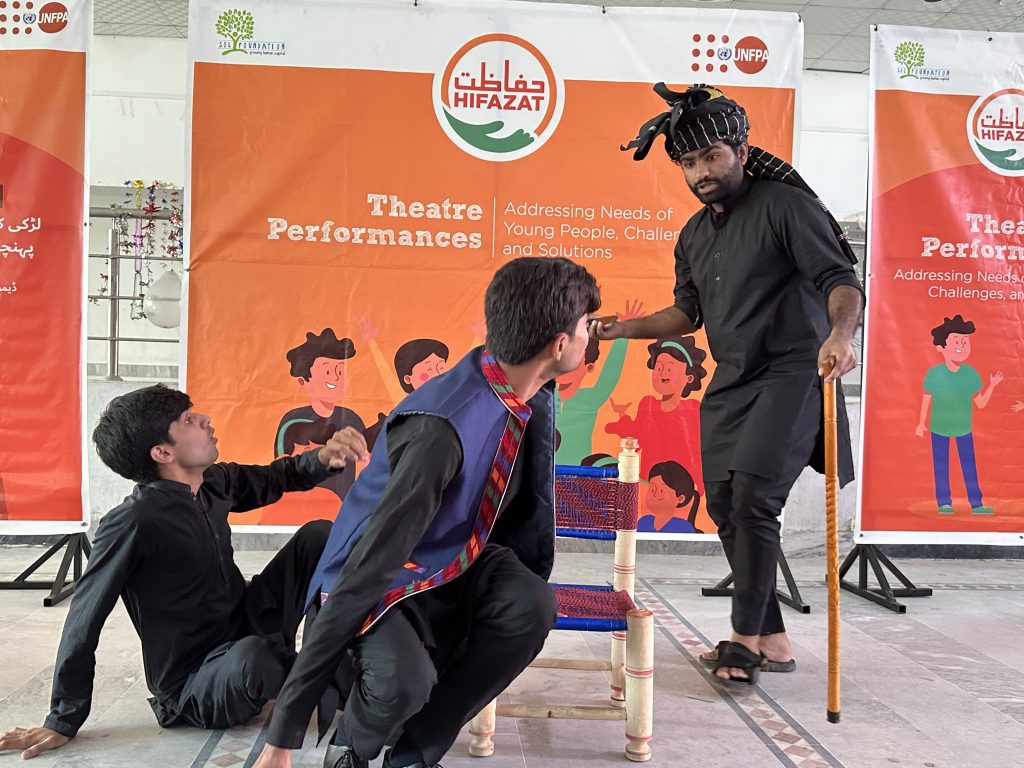

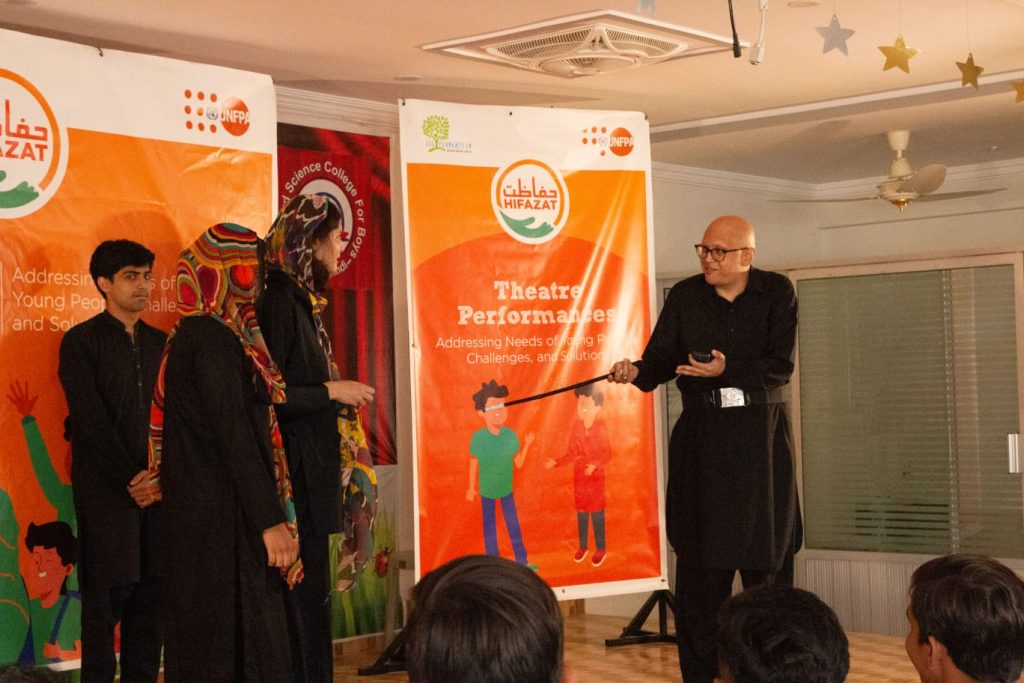
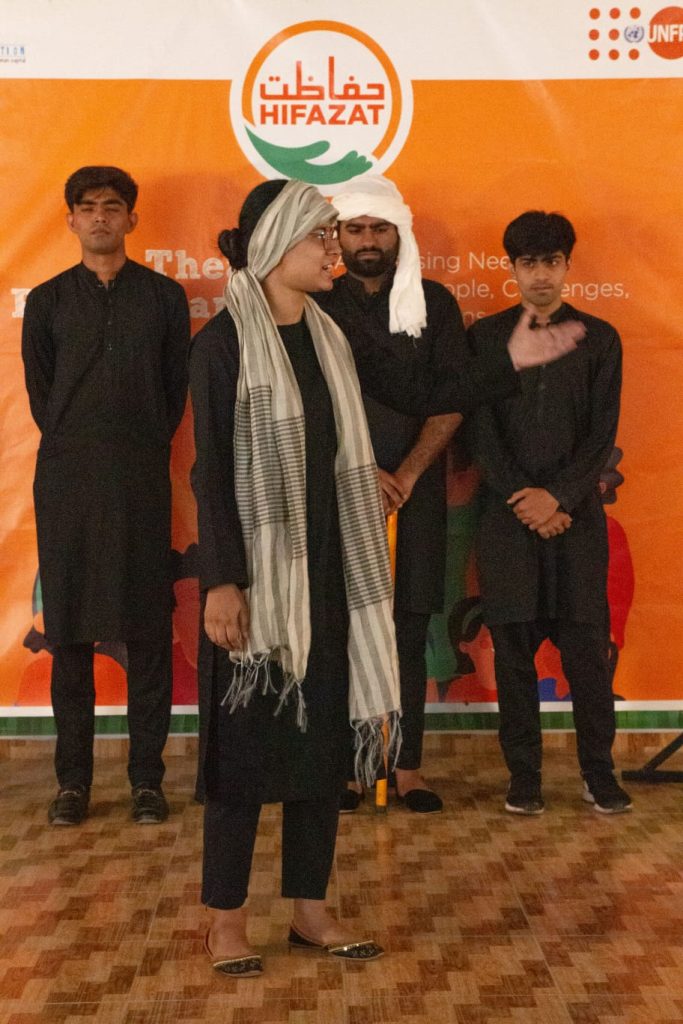
The play was written and directed by Safeer Ullah Khan. The cast included Imran Iftikhar, Tayyab Ali, Iqra Altaf, Anum Arooj, Faizan Ahmed, Azam Hameed, and Faizan Asad.
